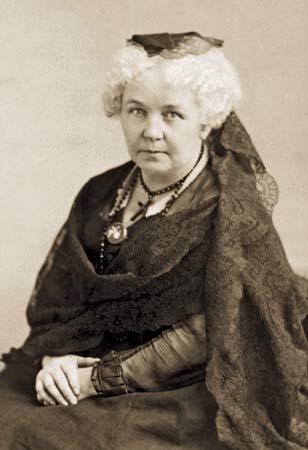
Before Stanton narrowed her political focus almost exclusively to women's rights, she was an active abolitionist with her husband, Henry Brewster Stanton and cousin, Gerrit Smith. Unlike many of those involved in the women's rights movement, Stanton addressed various issues pertaining to women beyond voting rights. Her concerns included women's parental and custody rights, property rights, employment and income rights, divorce, the economic health of the family, and birth control. She was also an outspoken supporter of the 19th-century temperance movement.
After the American Civil War, Stanton's commitment to female suffrage caused a schism in the women's rights movement when she, together with Susan B. Anthony, declined to support passage of the Fourteenth and Fifteenth Amendments to the United States Constitution. She opposed giving added legal protection and voting rights to African American men while women, black and white, were denied those same rights. Her position on this issue, together with her thoughts on organized Christianity and women's issues beyond voting rights, led to the formation of two separate women's rights organizations that were finally rejoined, with Stanton as president of the joint organization, approximately twenty years after her break from the original women's suffrage movement. Stanton died in 1902 having authored both The Woman's Bible and her autobiography, along with many articles and pamphlets concerning female suffrage and women's rights.
No comments:
Post a Comment